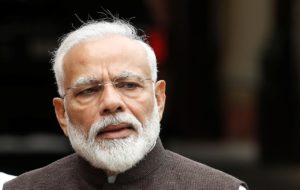Durban and the climate change deniers
As crucial climate talks begin in Durban, attention is focused on the likely role of the major country groupings. The outcome of the U.N. climate conference will be largely decided by the interplay of forces between the Basic (Brazil, South Africa, India and China) group formed two years ago, the EU, and the umbrella group of developed countries, led by the U.S. and comprising Russia, Japan, Canada, Australia and others who oppose legally binding climate commitments.
The three issues
For the first of these groups three issues are critical: the pressure on members to undertake binding obligations in the near future (which it opposes because of its developing world status); the fate of the Kyoto protocol, the world\’s only effective legal agreement on climate; and the performance of the developed states of the global north regarding their pledges to finance the south\’s climate actions.
All the Basic countries\’ greenhouse emissions are growing much faster than the world\’s — in fact about five times faster in China and India. But China is far more industrialised than the others, and in a different economic league. Its per-capita carbon emissions are close to western Europe, and South Africa\’s are even higher. But India\’s and Brazil\’s emissions are low, and comparable to those of the world\’s poorest countries.
Brazil and South Africa say they could accept binding obligations in return for finance. South Africa as conference host is expected to work for Durban\’s success, even if that means eroding the group\’s solidarity. Pressure is growing for the group to accept obligations identical to those imposed on the north. China and India responded to such pressure in 2009 by voluntarily pledging to reduce the emissions intensity of their GDP by respectively 40-45 per cent and 20-25 per cent by 2020. The emissions savings would be higher than the emissions reductions promised by most northern countries.
But the global north, responsible for 75 per cent of accumulated CO{-2} emissions, has made far less substantial pledges than the south, which is least responsible for climate change but whose people are the most at risk. It\’s unlikely that India will agree to binding commitments. The issue is a potential deal-breaker.
The EU has linked it to another hypersensitive issue on which Durban could founder, the Kyoto protocol. This imposed a modest five per cent emissions cut on the north. Despite some flaws, including an over-reliance on markets, Kyoto differentiates between the north and south\’s responsibility for climate change and mandates that the north repay its climate debt.
But Kyoto\’s effective, early phase, called “first commitment period,” ends next year. A second period must be negotiated if Kyoto is to survive. Russia, Japan and Canada are vehemently opposed to such an extension, and the U.S. seems to be working quietly to kill Kyoto, which it never ratified.
The EU initially played a positive role in the climate talks but has since turned conservative. It says it will support a second commitment only if the Durban summit agrees binding cuts for the emerging economies. But this risks obliterating the north\’s historical responsibility for climate change and jeopardising poverty eradication programmes in those countries. The developing countries, annoyed that the north hasn\’t fulfilled its Kyoto obligations, have made a second period a precondition for Durban\’s success.
Japan, Canada, France, Spain, Australia and the Netherlands will probably miss their Kyoto targets, some by as much as 30 per cent. Others claim Kyoto compliance by buying carbon credits. Carbon trading, based on dubious economics, has become a massive scandal, replete with overgenerous emissions allowances, misreporting and fictitious projects.
The Basic countries probably can be persuaded to accept binding emissions — intensity cuts, and later emissions cuts — once their people have fulfilled their need for food, healthcare, education and electricity. Immediate cuts would be iniquitous and punish their poor. The EU can play a valuable role if it neutralises the U.S. and brings other ditherers on board while starting talks on future obligations for the emerging economies.
The alternative would be a collapse at Durban — or worse, a “greenwash” outcome similar to Copenhagen, where the U.S. and Basic countries colluded to write an atrocious deal that forced a transition from emissions reductions based on science and equity to arbitrary, unambitious, paltry, voluntary national pledges. Such an outcome would guarantee a climate catastrophe.
(Praful Bidwai is author of The Politics of Climate Change and the Global Crisis: Mortgaging Our Future. This article was published in The Guardian)





